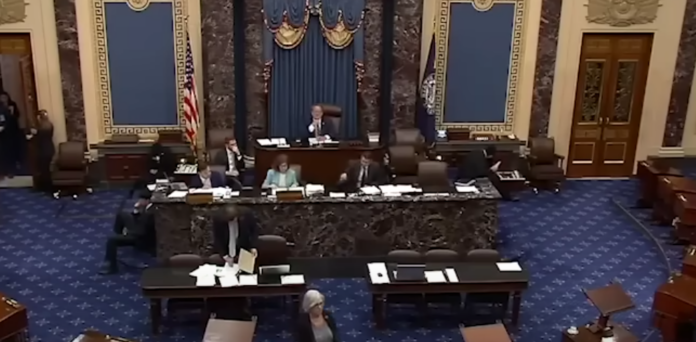OPINION | This article contains opinion. This site is licensed to publish this content.
The Supreme Court ruled against three illegal aliens seeking to rescind their deportation orders, stating that the Department of Justice provided proper notice of their immigration hearings.
The majority opinion, written by Justice Samuel Alito, highlighted that despite initial defective notices to appear, subsequent notifications met the legal requirements.
The Court clarified that to rescind an in absentia removal order, the alien must show non-receipt of notices under both notification paragraphs.
“Campos-Chaves, Singh, and Mendez-Colín all received ‘notice in accordance with paragraph (1) or (2)’ for the hearings they missed, and thus their in absentia removal orders may not be rescinded on that ground. The Government concedes that none of them received a compliant NTA. Each did, however, receive a ‘notice in accordance with paragraph . . . (2),’ and each notice met all of the requirements for a notice under that provision. After receiving a defective NTA, each alien received a notice that provided a specific time and place for their removal proceedings. Those notices provided ‘new’ times, and thereby ‘change[d]’ the time and place of their removal proceedings, within the meaning of §1229(a)(2),” Justice Samuel Alito wrote.
“When the Government seeks to remove an alien, it is required to notify the alien of the time and place of the removal hearings. Title 8 U. S. C. §1229(a) describes two types of notice—an initial notice to appear under paragraph (1), and, ‘in the case of any change or postponement in the time and place of’ the removal proceedings, a notice of hearing under paragraph (2). When an alien fails to appear at his removal hearing despite receiving such notice, he ‘shall be ordered removed in absentia’ if the Government can make certain showings. §1229a(b)(5)(A). The alien can seek to have that order rescinded, however, if the alien can demonstrate that he ‘did not receive notice in accordance with paragraph (1) or (2) of [§1229(a)].'”
“We granted certiorari in these cases to consider what it means to ‘demonstrat[e] that the alien did not receive notice in accordance with paragraph (1) or (2).’ §1229a(b) (5)(C)(ii); 600 U. S. ___ (2023). Each of the aliens in these cases argues that he may seek rescission because he did not receive a notice to appear that complies with paragraph (1). We hold that, to rescind an in absentia removal order on the ground that the alien ‘did not receive notice in accordance with paragraph (1) or (2),’ the alien must show that he did not receive notice under either paragraph for the hearing at which the alien was absent and ordered removed. Because each of the aliens in these cases received a proper paragraph (2) notice for the hearings they missed and at which they were ordered removed, they cannot seek rescission of their in absentia removal orders on the basis of defective notice under §1229a(b)(5)(C)(ii),” he wrote.
Justices Alito, Roberts, Thomas, Kavanaugh, and Barrett supported the decision, while Justice Jackson dissented along with Justices Sotomayor, Kagan, and Gorsuch.
The case is Campos-Chaves v. Garland in the Supreme Court of the United States.

